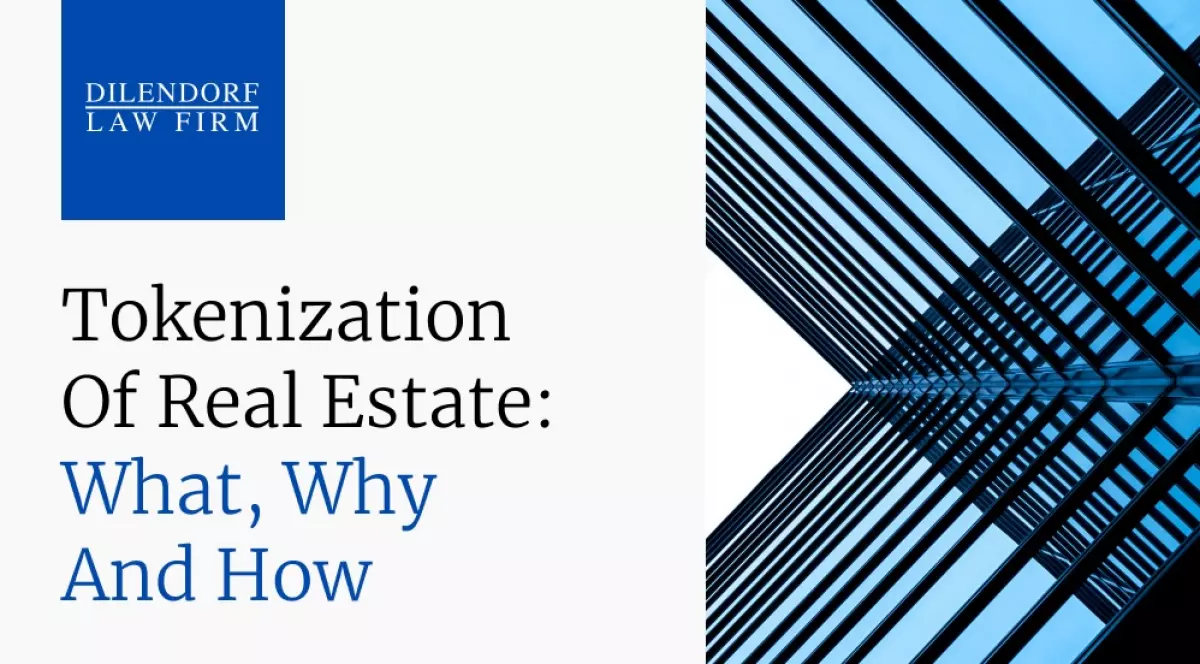Real estate has long been considered a secure investment option, providing a stable asset in an ever-changing market. However, the complexity and high costs associated with real estate transactions have limited its liquidity, making it challenging for investors to buy and sell properties with ease.
 Image Source: Sanaulac
Image Source: Sanaulac
A potential solution to these challenges is tokenization - a process that represents ownership of real estate through virtual tokens on a blockchain. By embracing tokenization, the real estate industry can unlock a range of advantages, including increased liquidity, enhanced transparency, improved security, and simplified management.
What is the Tokenization of Real Estate?
Tokenization involves the creation of virtual tokens that represent ownership of a real estate interest. Unlike traditional paper-based transactions, tokenization allows for digital transactions using tokens. These tokens can represent various types of ownership, including real asset ownership, equity interests in legal entities, debt interests, or revenue-sharing rights.
The flexibility of tokenization extends to the types of real properties that can be tokenized. From single-family homes to office buildings, retail spaces, and more, tokenization opens up investment opportunities across diverse asset classes. However, it's crucial to understand that cross-border planning is necessary to ensure tax-efficient holding for non-US investors.
The real estate industry is already witnessing the development of various tokenization models, such as ownership through special-purpose vehicles, shares in real estate funds, timeshares, investments in development projects, and tokenized REITs.
Advantages of Tokenization
Tokenization has the potential to revolutionize the global real estate market by offering numerous advantages to issuers and investors alike. Some of these advantages include:
Increased Liquidity
Tokenization addresses the primary challenge of real estate investments - illiquidity. By making real estate investments easier to buy and sell, tokenization can decrease the illiquidity discount imposed on the true value of these assets. With tokenization, the pool of potential investors becomes truly global, expanding investment opportunities and attracting new participants.
Transparency and Security
Tokenization leverages blockchain technology, ensuring transparency and security. Blockchain serves as a public ledger, recording every transaction involving tokens. This eliminates the risk of token double-selling and provides investors with greater confidence in their investments. Additionally, blockchain-based distributed ledgers and advanced cryptography enhance security by preventing unauthorized access and fraud.
Immutability and Simplified Management
Once recorded and confirmed on the blockchain, transactions become immutable, protecting investors from fraudulent activities. Tokenization also simplifies the management of investors and their rights. Through smart contracts on the blockchain, secondary transactions can be easily tracked, and investors can receive distributions and exercise their rights more efficiently.
Tokenization Strategy: Legal and Other Considerations
While the potential of tokenization in real estate is immense, it's crucial to navigate the complex legal and practical considerations. Developers looking to tokenize real estate must address a range of issues, including the type of interest being tokenized, legal entity structuring, smart contract design, securities regulations, tax and reporting considerations, and more.
For instance, different regulations apply depending on the type of interest tokenized, whether it's equity, debt, or otherwise. Structuring the special-purpose vehicle (SPV) is critical, as it separates the assets and liabilities from the issuer, protecting tokenholders. Smart contracts must be carefully designed, audited for security, and aligned with legal requirements.
Complying with securities regulations is essential to avoid penalties and ensure investor protection. Understanding and utilizing exemptions, such as Regulation CF and Regulation A+, can facilitate a streamlined token offering process and broaden investor participation. Proper tax planning and reporting, as well as considerations for asset type, location, tokenization ratio, mortgage issues, and investor tracking, are also fundamental aspects to address.
Conclusion
Tokenization has the potential to transform the real estate market by offering enhanced liquidity, transparency, security, and management opportunities. However, it requires careful planning and collaboration with experienced professionals specializing in real estate, securities, tax, and blockchain. By leveraging tokenization effectively and navigating the legal complexities, issuers can unlock the vast potential of this groundbreaking technology in real estate investment.
Special thanks to Jor Law, Esq., for sharing their insights on this article.
Co-Authors: Rika Khurdayan and Gleb Zaslavsky

















